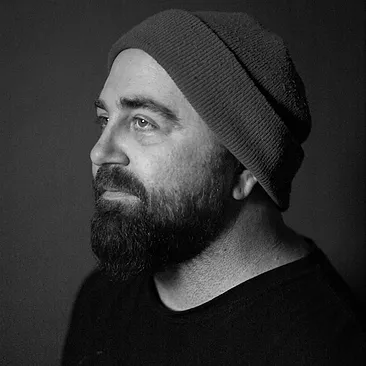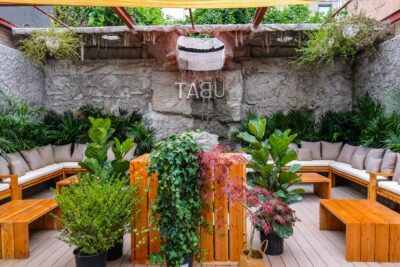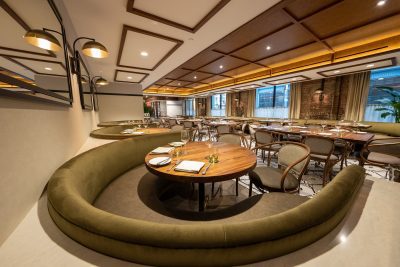Courtesy NYC Planning
‘Nowhere else for us to be pushed’: Gowanus artists weigh in on the rezoning
We speak with local nonprofit Arts Gowanus about the future of the local arts community—and what to expect at Gowanus Open Studios
The New York City Council held their final public hearing on the Gowanus Neighborhood Plan Tuesday, inviting neighbors to weigh in and volleying questions at developers over the course of a five-hour meeting. The City Planning Commission greenlit the project last month, and the council is preparing for their first binding vote on the polarizing 82-block rezoning.
One constituency that is agitating for a prominent seat at the bargaining table is the local artists. Arts Gowanus is a nonprofit and a member of the Gowanus Neighborhood Coalition for Justice, a collective of Gowanus community groups working to ensure that the areawide rezoning benefits existing Housing Authority developments and public housing residents.
The group has been vocal about the impact the impending rezoning will have on working artists and their access to affordable studio spaces.
“The biggest hurdle in New York City for all artists is affordability and sustainability,” says Johnny Thornton, the executive director of Arts Gowanus. “Artists are used to having very little protections when it comes to renting, and we really want to change that.”
The rezoning plan promises more than 3,000 units of affordable housing as part of a net gain of 8,000 new housing units. A monthslong Uniform Land Use Review Procedure is still underway, spearheaded by the Department of City Planning, with particular focus on funding for improvements at public housing complexes Wyckoff Gardens and Gowanus Houses.
The plan has so far been approved by Brooklyn Community Board 6 with a list of conditions, including the GNCJ’s three core demands. Although these conditions are technically advisory, Councilmembers Brad Lander and Stephen Levin, both representatives of the neighborhoods at stake, have promised that they will not vote in favor of rezoning without the inclusion of GNCJ’s demands.
Artists in Gowanus often grapple with rising rents and sudden displacement. At the beginning of the pandemic, when nonprofit Spaceworks closed down, 28 artists were expected to immediately pack up their studios. Arts Gowanus was able to work with building management to prevent relocation.
As the council vote looms, Arts Gowanus has been working with Lander on a provision that will carve out affordable spaces for artists in new developments. Thornton, along with several other Gowanus artists, testified at the public hearing.
Brooklyn Magazine spoke with Thornton on the eve of the Gowanus Open Studios weekend—in which some 400 artists are showing their work at 100 locations throughout the area—about the effort to protect the existing arts community in the rezoning plan.
This interview has been edited for clarity and concision.
Talk about the challenges artists in Gowanus have been up against.
Covid was rough for all of the artists. Entrepreneurships and shows were canceled, and opportunities dried up in a neighborhood where a lot of artists’ livelihoods depend on that. Gowanus Open Studios is such an important weekend for so many people, and having to cancel that [in 2020] was a big deal. That’s where a lot of the sales and connections take place.
And now the proposed rezoning is moving along. How do you view that?
Artists are always wary of rezoning. Historically, artists are always the first to be pushed out of any rezoning. When I came in as executive director, I saw that the rezoning had a high probability of passing. My job as an artist advocate was to try to get a seat at the bargaining table and see how we could preserve this community in the face of rezoning.
We had always been a member of the GNCJ. When I stepped in as executive director in 2020, we started going to all the meetings and getting very involved with that community. Their top three demands are necessary for an equitable rezoning: The capital funding for NYCHA is a heavy priority for everyone in the neighborhood. Taking care of the sewage and creating good community oversight is necessary for this rezoning.
Talk about the community benefits agreement, which is meant to benefit artists?
What we’re trying to accomplish in our community benefits agreement, if the rezoning goes through, is to create long term subsidized studio spaces. We’re trying to get over 200 studios at a highly subsidized rate built into the deed of the covenant to each building that agrees to the CBA.
How did you go about including the broader arts community in this conversation?
We don’t want to exist in a vacuum, where I’m making these big decisions for the community. We have an artist advisory committee. It’s a group of artists who we contact and bounce ideas off, and many of them have been in the neighborhood for decades. We discussed what the best course of action would be to ensure this community stayed intact if the rezoning went through, and we’ve been keeping them up to date on the community benefits agreement.
How far along are you in the CBA process?
We’re working on the terms of the CBA with a group of developers, and Brad Lander is still signing more on. We’re really on the clock now, because we need to have an ironclad, long term contract built into the deeds of these buildings. Whether these buildings change hands, we need maximum protections. We’re really happy so far with the range of affordability the developers have agreed to, which is about half of what the normal studio rent is.
What do you think would be the impact on artists if this agreement wasn’t reached?
If the CBA isn’t agreed to and ironclad by the time the rezoning goes through, I believe the same thing will happen that has happened to every neighborhood where it was once vibrant and full of a diverse group of artists. They get pushed out and they have to move on to the next place. But the problem with Brooklyn and New York City is there’s not a lot of more places where artists can be pushed.
We’ve been losing artists in Gowanus for as long as I’ve been here. The rezoning would likely raise rents and make it unaffordable for artists. It would be a deathblow for the entire artist community here.
On a lighter note, what are you looking forward to at Gowanus Open Studios this weekend?
We made it a priority this year to find spaces for over 50 artists that have either been displaced by the pandemic, due to affordability issues, or had no place to show. A lot of artists had studios and lost them, and we were able to place them in certain buildings around town during Open Studios.
We’ve also been working with the artist group Gowanus Night Heron. We picked 30 artists to transform 30 acrylic boxes, and they are going to be set up in four different locations on the map. That’s a really great project!
You might also like 



























